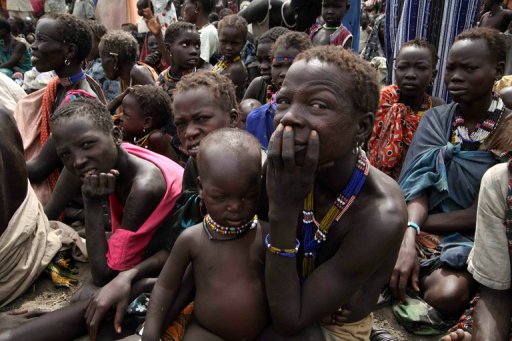Over the decades rich nations have poured trillions of dollars into African development projects, but the global economic meltdown and Africa’s booming growth are turning off that tap.
In 2012 western aid to sub-Saharan Africa quite literally decimated.
Rich countries making up the OECD reduced assistance to the region by ten percent, the largest drop in 16 years.
Under pressure, many European chancelleries cut, slashed and snipped aid budgets as part of broader austerity measures.
Spain alone cut its development budget in half.
Some $26 billion still flowed south, but the message was clear: aid is on the chopping block.
Austerity was a large part of the story, but cuts were also pushed along by a deeper current, one that has been flowing away from development assistance for some time.
Much has changed in Africa’s relationship with the West in the 50 years since development aid helped newly-independent nations overcome colonial injustices.
Most notably, African economies are now coming into their own.
The IMF predicts sub-Saharan Africa will grow by 5.4 percent this year — figures the West can only dream of.
When donors recently froze aid amounting to 11 percent of Rwanda’s budget, the country simply raised $3.5 billion through the issuance of sovereign bonds.
Britain’s recent announcement of the end of direct aid to South Africa typified the trend.
To be sure, long-held doubts about aid effectiveness and corruption informed the decision with commentators noting wryly that the aid cut roughly corresponded to the $22 million President Jacob Zuma spent on “security” upgrades for his home.
But more importantly the decision represented a view that Africa’s biggest economy should be able to stand on its own too feet.
Still many are fearful that the baby will be thrown out with the bathwater.
Money from the world’s rich nations helped dramatic improvements in health, like halving maternal and infant mortality in Africa, said Byanyima.
Yet even aid agencies — who also benefit from Western governments’ largesse — acknowledge change must come.
In recent years their focus has already begun to shift to skills development, and funding local organisations that have more support from local people.
In fact Oxfam now actively encourages poorer nations to “plan their way out of aid” by better using their own resources.
Collier agreed: “New approaches are needed. We best know how to make aid work in countries where it is no longer needed!”
While development aid is changing, a lot of money will still be channelled to humanitarian interventions.
Dramatic events like the Arab spring or the Haiti earthquake in 2010 mean aid will always create need, Collier said.

COMMENTS
Please let us know if you're having issues with commenting.